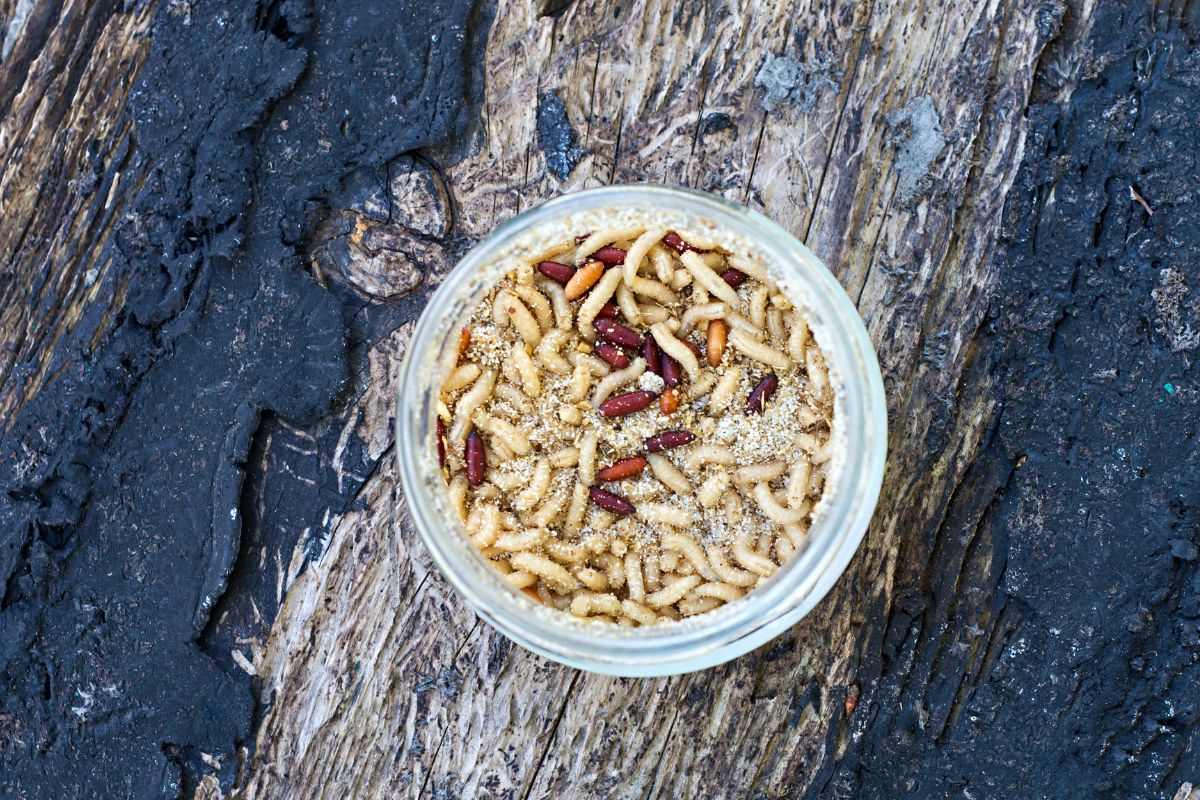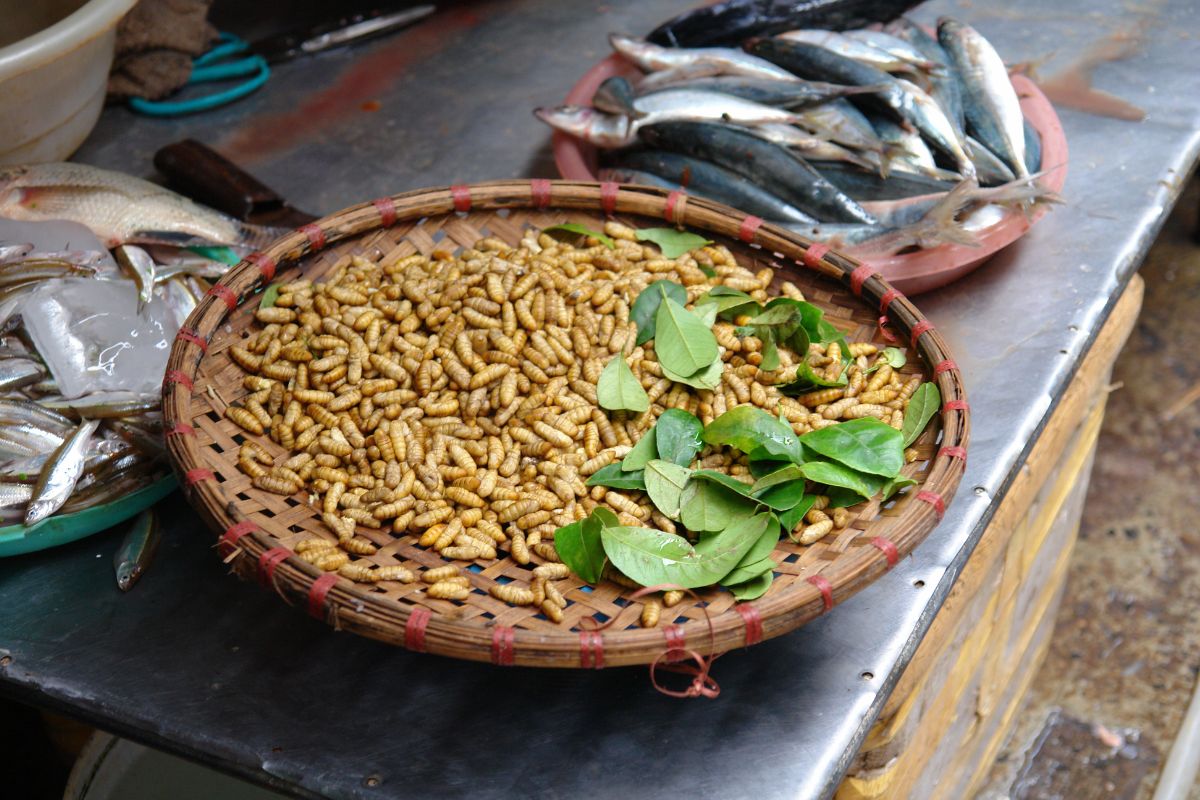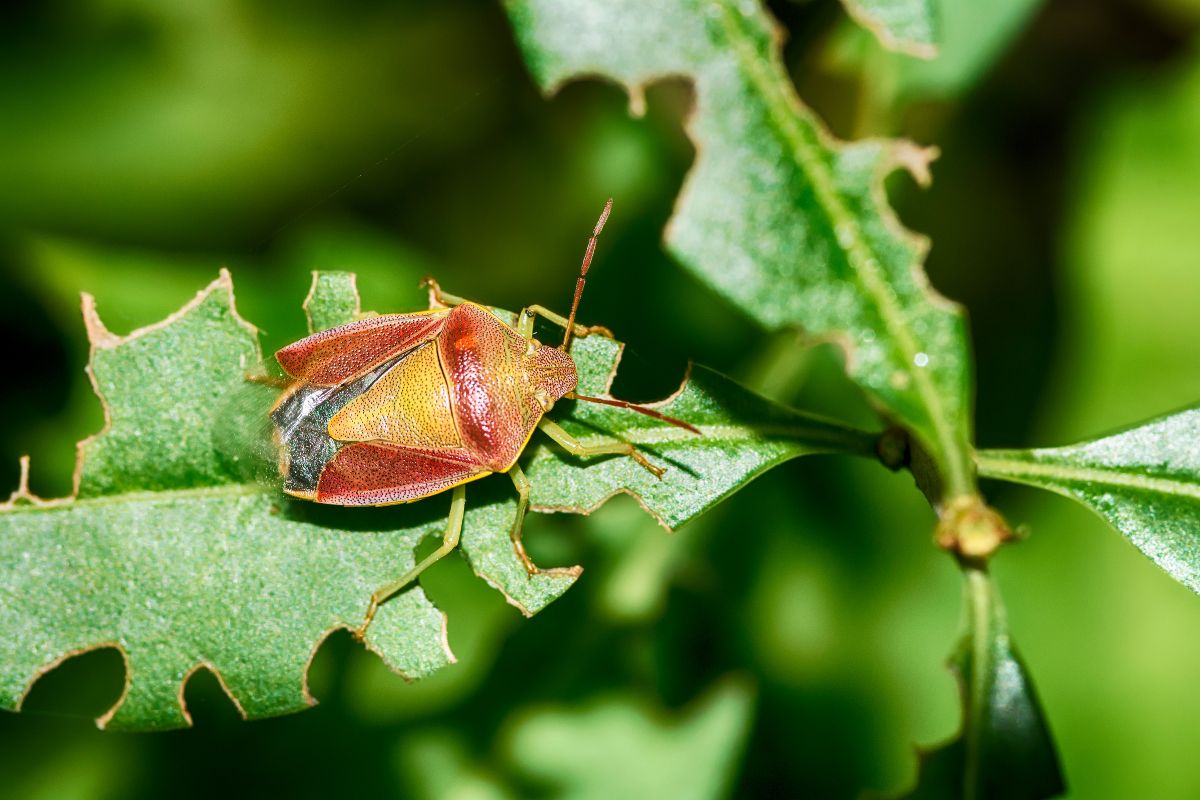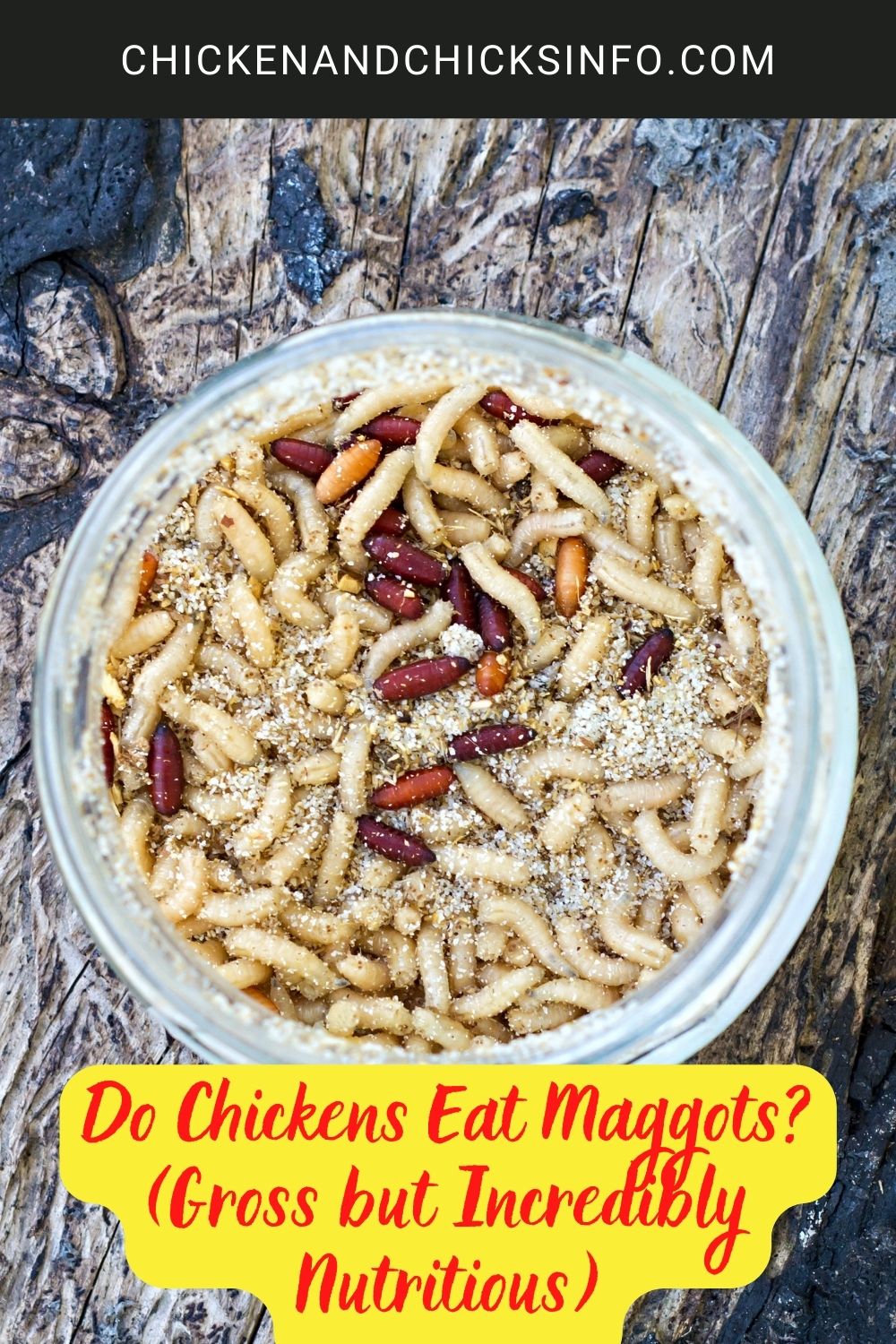
Chickens do and will eat maggots if they find them, yes. Not only is it fine for hens to eat maggots, but they are also rich in protein and provide a nutritious snack. Some backyard chicken owners deliberately cultivate maggots for this reason.
Jump to:
Is It Ok for Chickens To Eat Maggots?
I mentioned above, maggots are a great source of protein. Protein is one of the key nutritional elements in a chicken's diet.
Hens typically need between 16%-20% protein in their diet depending on their stage of life. This is easily delivered with a good commercial feed. But outside of feed, that’s a lot of protein, which is why chickens forage for live prey.
According to Post Magazine, black soldier fly larvae can provide more protein than other terrestrial animals and plants. It’s estimated that their larvae are as much as 60% protein.
Obviously, that’s too high for chickens, but you wouldn’t raise your chickens on maggots alone. They are a treat to be provided in moderation. But as treat foods go, they are literally one of the best things to feed to chickens.
Nutritional content aside, most people are grossed out by maggots and assume they’re harmful or bad in some way.
This couldn’t be further from the truth. Maggots are known to hatch and feed on materials that may have diseases, such as rotting food, carcasses, poop, etc. But they are not known for being disease-carrying or disease-spreading insects.
So, the risks really lie in on what and where the maggots have been feeding. Don’t pick them from a rotting carcass and give them to your chickens, for example.
If you’re going to make it a regular treat, you should consider cultivating your own maggots or buying them.
What Exactly Are Maggots?

Don’t feel bad if you don’t know a lot about maggots, I don’t think many people do.
We all know they’re gross and a nuisance and that people use them as bait for fishing, but outside of that most people avoid them.
Maggots are actually young flies in their larvae stage. Flies lay eggs, which look like little pieces of rice, and these hatch into maggots.
This is why they’re typically found on food sources. Maggots feed on anything and everything around them until they form pupae and hatch into flies.
One of the biggest misconceptions I come across is that maggots and grubs are the same things, or of a similar species.
Grubs are also larvae, but they become beetles later in their life cycle. Beetles and flies are very different insects.
Related - Grubs are also great for chickens!
Can Baby Chicks Eat Maggots?
You bet they can! Chicks require a high-protein diet to grow up strong. As I’ve explained, maggots are literally one of the easiest and best sources of protein.
They’re also a nice size for chicks and helps introduce them to eating live insects. Again, use maggots to supplement their diet. You should always provide plenty of starter feed for your chicks.
Some of the Other Backyard Bugs That Chickens Can Eat

Maggots are awesome for chickens, but if you don’t want to handle or deal with maggots there are plenty of other insects that are (almost) as nutritious.
In fact, you don't have to do much. Your chickens are going to eat just about every creepy-crawly or flying creature that gets close enough to them to be eaten.
Here are some of the most common insects and bugs that chickens commonly eat:
- Worms
- Ants
- Flies
- Slugs and snails (read about the risks slugs present here.)
- Wasps, yellow jackets, hornets etc
- Beetles
- Stink bugs
- Ladybirds
- Cockroaches
… and the list goes on. It really depends on where you live as to what insects your chickens are likely to come across.
It's always worth double-checking that whatever they're eating is safe for them. But there are very few insects chicken shouldn't eat.
In Summary
Now you know, gross, wriggly little maggots are actually a super-food for chickens!
If you find any maggots under a large stone in your yard, in your compost pile, or anywhere else, you should consider yourself lucky. Or, at least your chickens should consider themselves lucky.
I know a lot of homesteaders and people who are self-sufficient deliberately cultivate maggots as a food source for their chickens. If you can face dealing with them, I’d recommend looking into it as an option for sure.
Resources
Maggots, the future of food - Post Magazine





